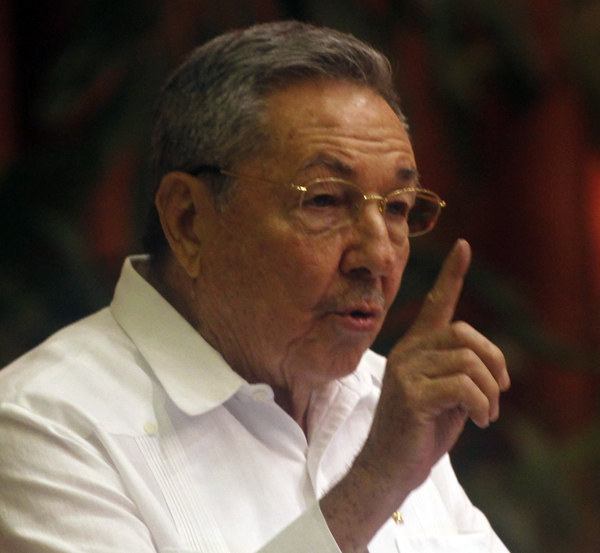latin america
Bolivia: Evo Morales' fight to control the military

By Federico Fuentes
On the meaning of ‘popular front’

The Bolivarian movement led by Hugo Chávez contains bourgeois forces and has been th
Cuba: National Assembly approves economic changes; Raul Castro's speech

"More than once, I have stated that our own worst enemy is not imperialism but our own errors and that these, if they are deeply and honestly analysed, can be transformed into lessons in order not to fall into them again." -- Raúl Castro
By President Raúl Castro
Speech given by President Raúl Castro Ruz, president of the Councils of State and Ministers, to the 7th ordinary session of the 7th legislature of the National Assembly of People’s Power, August 1, 2011. The parliament earlier that day also adopted the amended Guidelines of the Economic and Social Policy of the Party and the Revolution as state policy.
Compañeras and compañeros:
Bolivia: Cut war spending to aid victims of climate change

A positive initiative would significantly reduce military spending and allocate monies to a fund that addresses the impacts of climate change in developing countries.
Statement by Ambassador Rafael Archondo, permanent representative of the Plurinational State of Bolivia to the United Nations, in the debate of the United Nations Security Council on maintenance of international peace and security: the impact of climate change, New York, July 20, 2011. Thanks to Climate and Capitalism for the text.
* * *
Thank you Mr. President.
Bolivia joins the statements made by the Group 77 and China, represented by Argentina and the Non-Aligned Movement, whose voice has been expressed by Egypt.
Mr. President:
Climate change is a real threat to the existence of mankind, other living creatures and Mother Earth, and given its systemic nature, can be analysed from multiple dimensions such as social, economic, cultural or environmental.

By Felipe Stuart Cournoyer and John Riddell
Cuba: Historian's party membership restored

Message to my readers and friends
By Esteban Morales. Translation by Walter Lippmann for CubaNews
July 7, 2011 -- This is to let you know that last week I was summoned by the Appeals Commission of the Central Committee of the Communist Party of Cuba to a meeting in which I was informed of their decision to nullify the separation order from the party given last year by the Playa Municipality Committee and to return my card and full membership.
I'd like to seize the opportunity to state how grateful I am for all the support I have received in the last few months from friends, intellectual colleagues and people I've never met who got in touch with me through different ways, made statements about this issue, or simply stopped me in the street for an update on my situation.
I also want to thank my family for their support in these difficult and yet extremely enlightening days. I will keep on working as hard as I have on the topics I have been writing about in my blog. I'm looking forward to your attention.
Socialist Alternative misunderstands Cuba ... again

Small business in Cuba.
`Foro Social Latinamericano', Green Left Weekly's Spanish-language supplement, June 2011 issue
The tide of rebellion and revolution now sweeping Latin America is posing a serious challenge to imperialism’s brutal global rule. For anyone who wants an end to war, exploitation and oppression, Latin America’s struggles to create alternatives are crucially important.
Australia's leading socialist newspaper Green Left Weekly is strongly committed to supporting the growing “people’s power” movement in Latin America. Through our weekly articles on developments in the region, GLW strives to counter the corporate media’s many lies about Latin America’s revolutions, and to give a voice in English to the people’s movements for change.
Cuba: Notes on socialist democracy, by Dario Machado Rodriguez

Photo by Roberto Suarez.
John Paul II: patron saint of anti-modernism

Karol Wojtyla (Pope John Paul II) with US President Ronald Reagan.
By Barry Healy
June 7, 2011 – Links International Journal of Socialist Renewal -- As part of its attempts to turn back the clock in the Catholic Church the Vatican drew 1.5 million of the devout to Rome on May 1 for the beatification ceremony of Karol Wojtyla, Pope John Paul II. John Paul II may become the fastest declared saint in history.
The Vatican is also pushing the canonisation of Pius XII, who was pope during World War II.
While attention has been drawn to John Paul II’s woeful record on the issue of sexual abuse within the church little has been said about the reasons for the rush to beatification and sainthood.

